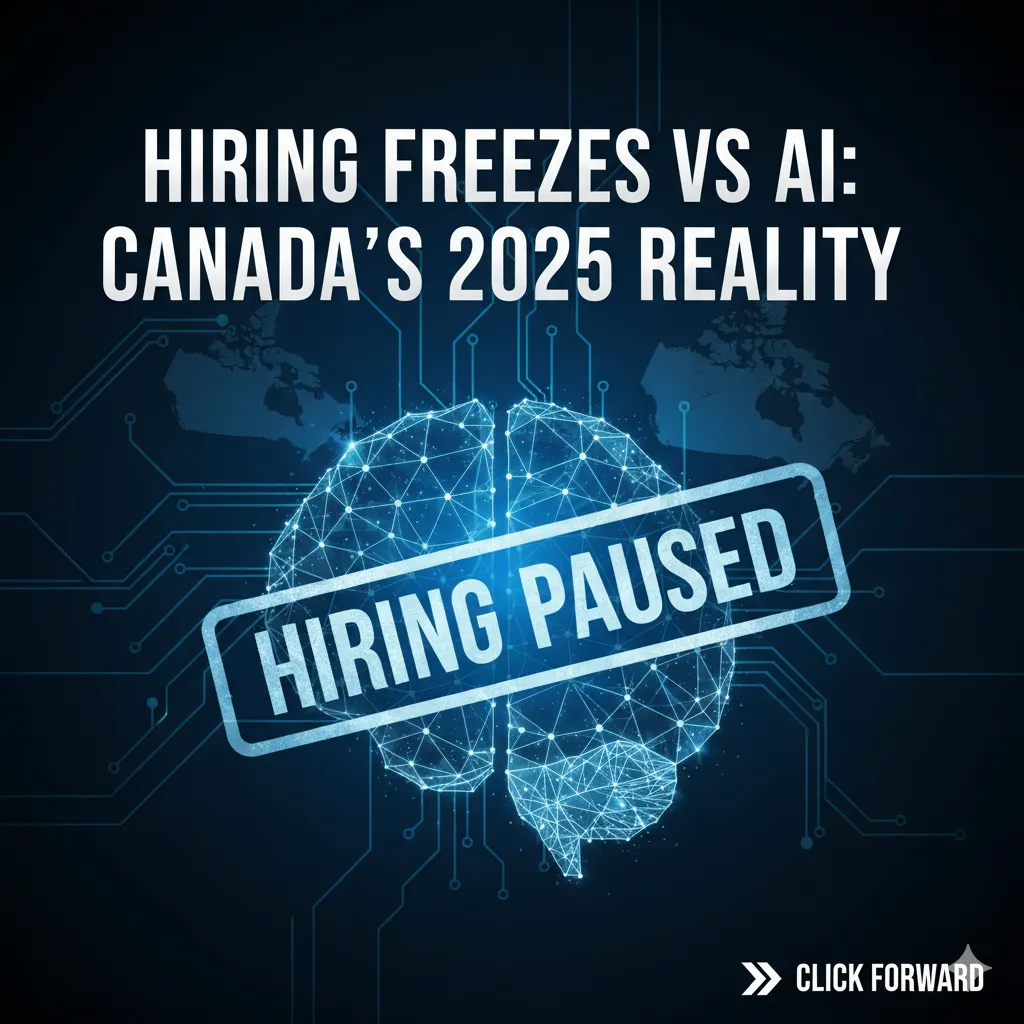Voice AI Receptionists & AI SEO Convert 24/7 On Peak Demand
Peak Demand is an AI-first agency specializing in custom Voice AI receptionists, AI answering systems, and AI SEO (GEO/AEO) strategies designed to convert discovery into revenue. Unlike off-the-shelf voice AI tools that often fail due to poor integration, limited workflow design, or unreliable call handling, our systems are engineered for real-world deployment. We architect intelligent voice agents that answer calls, book appointments, qualify leads, and integrate seamlessly with CRM, ERP, and EHR platforms — ensuring that your AI receptionist performs reliably at scale.
Phone: +1 (647) 691-0082
Email: [email protected]
What Is a Voice AI Receptionist?
A Voice AI receptionist is an intelligent call-handling system that answers inbound calls, understands what the caller needs, and takes action — such as booking appointments, routing calls, capturing leads, collecting intake details, or creating service tickets. It uses natural language processing, structured workflows, and business rules to deliver consistent outcomes without relying on a human operator for every call.
In real operations, the “AI voice” is only one layer. A reliable receptionist requires workflow design, systems integration (CRM/EHR/ERP/booking), data validation, escalation logic, safe fallbacks, and performance monitoring. This is where most plug-and-play tools fall short — not because AI is bad, but because production call handling requires engineering discipline.
Answers, Routes, and Resolves
Handles new callers, repeats, overflow, and after-hours calls with structured routing aligned to your policies and teams.
Books Appointments & Creates Tickets
Connects to scheduling rules and service workflows, collects required details, and confirms next steps without missed calls.
Captures Leads with Context
Captures intent, urgency, and contact details — then pushes structured records into your CRM pipeline for fast follow-up.
Integrates with Your Systems
Connects to CRM/ERP/EHR systems, calendars, ticketing tools, and APIs to reduce manual work and prevent drop-offs.
Q: What can a Voice AI receptionist do on a real business phone line?
- Answering inbound calls 24/7 (including overflow and after-hours)
- Booking appointments and enforcing scheduling rules
- Routing calls based on caller intent, department, or urgency
- Capturing leads and creating CRM records automatically
- Collecting intake information (reason for call, service type, details)
- Creating tickets/cases in customer service or helpdesk systems
- Escalating to humans with context when policy or confidence requires it
Q: Why do many businesses abandon off-the-shelf Voice AI tools?
Q: How do you reduce hallucinations or incorrect actions on calls?
Q: Can a Voice AI receptionist book appointments and send confirmations?
Q: What happens if the AI isn’t sure what the caller means?
Q: Does Voice AI replace my staff?
Q: How is pricing determined for custom Voice AI receptionists?
Q: How long does it take to deploy a production Voice AI receptionist?
Q: What do you need from us to get started?
{
"section": "What is a Voice AI Receptionist",
"primary_topics": [
"Voice AI receptionist definition",
"custom voice AI receptionist",
"AI answering system",
"AI call routing",
"AI appointment booking",
"AI lead capture",
"CRM integration",
"reliability guardrails"
],
"definition": "An AI call-handling system that answers inbound calls and completes workflows such as booking, routing, intake, lead capture, and ticket creation using NLP + automation + integrations.",
"production_grade_components": [
"workflow logic and call flows",
"integrations to systems of record (CRM/calendar/ticketing/EHR/ERP)",
"guardrails (validation + confirmations + constrained actions)",
"human-first escalation with context",
"monitoring + reporting for continuous improvement"
],
"cta": {
"discovery": "https://peakdemand.ca/discovery",
"pricing": "https://peakdemand.ca/pricing"
}
}
Custom Voice AI Receptionists Built for Real-World Deployment
Most businesses don’t abandon Voice AI because “AI doesn’t work” — they abandon it because the deployment is missing the operational layers required for production: integrations, workflow logic, validation, escalation rules, and monitoring. A voice model alone is not a receptionist. A receptionist is a system.
Peak Demand builds custom Voice AI receptionists that hold up under real call volume. We map intents and business rules, connect the AI to your systems of record (CRM/ERP/EHR/calendar/ticketing), and implement safeguards so callers always reach an outcome: booking, routing, intake completion, or a human handoff.
Where “off-the-shelf” Voice AI tools fail (most common)
- No real actions: talks well, but can’t reliably book, route, open tickets, or update the CRM.
- Weak edge-case handling: interruptions, accents, noisy environments → brittle conversations.
- Bad handoffs: transfers without context frustrate staff and callers.
- Messy data: missing fields + poor validation → unusable notes and broken follow-up.
- Shallow integrations: “connected” but doesn’t enforce rules or complete workflows.
- No safeguards: lacks confidence thresholds, confirmations, and policy-based routing.
- No monitoring: failures repeat because outcomes aren’t tracked.
These are implementation gaps — not “AI capability” limits.
When custom Voice AI is the right move
If your current tool “works in demos” but fails on real callers, that’s usually a workflow + integration problem — which is exactly what custom implementation solves.
Peak Demand build standard (what “production-grade” includes)
What clients track (conversion outcomes)
- Booking rate: calls → scheduled appointments
- Lead capture rate: qualified contacts created
- Abandonment reduction: less voicemail loss
- Transfer quality: handoffs with context
- CRM completeness: required fields captured correctly
- Time-to-follow-up: tasks + SMS/email confirmations
- Containment rate: calls resolved without a human
The goal is simple: turn calls into measurable pipeline — and make sure your receptionist actually performs at scale.
AI News, AI Updates, AI Guides

Hiring Freezes Are Spreading: How AI, Entry-Level Jobs, and Canada’s Youth Collide in 2025
TLDR

What’s actually happening
Hiring freezes are spreading across public and private sectors as organizations pause to re-scope roles for an AI-first operating model.
Translation for jobseekers: this is a relabeling phase, not a permanent stop—expect fewer classic “junior” postings and more hybrid, tool-driven roles.
How AI changes entry-level work
Being automated first: tier-1 support, repetitive admin, manual data entry, rote research.
Growing tasks: data operations, workflow automation, agent/prompt evaluation, QA, analytics, documentation—with audit logs and escalation paths.
Employers are prioritizing candidates who can ship small automations, show measured impact (time saved, error reduction), and govern them responsibly.
The Canada context
Ontario’s freeze signals caution and a demand for clear productivity cases before new hires.
Canada faces peak aging (more retirements) and weak investment, which slows job creation but raises the need for automation to maintain service levels.
What this means for Canadian youth
The traditional “learn → land a junior job → learn on the job” is narrowing. Early roles now expect tool-first contributions from day one.
Two durable tracks:
Digital/AI track: data ops, analytics, RevOps/MarOps, workflow automation, agent QA/eval, cloud & infra support, data center technicians.
Human-intensive track: licensed/regulated roles with high trust and in-person demand—healthcare (nursing, allied health, mental health), skilled trades (especially electricians), education, field services.
Peak Demand’s position (practical and urgent)
Canadian youth should aggressively upskill in digital/AI or commit to a licensed trade/healthcare path. Waiting for “normal” to return is a losing bet.
Shipped work beats resumes: a small portfolio (intake triage, document QA, reporting agent, a simple integration) with logs and metrics outperforms generic credentials.
Governance is a differentiator: candidates who document risks, privacy, and evaluation earn trust faster.
Best near-term moves (30–90 days)
Pilot-ready AI skills: pick one workflow, automate a slice, and track time saved + error rate.
Cloud/data basics: learn SQL + one cloud (Azure or GCP); practice access controls and logging.
Agentic workflows: build a simple retrieval/summarization/filing agent with tests and fallbacks.
Governance from day one: keep a changelog, prompts, inputs/outputs, edge cases, escalation rules.
Trades path: explore pre-apprenticeships—electrician routes align with decades of data center build-out and electrification.
Bottom line
Hiring freezes mark a recomposition of roles, not a halt to opportunity. The winners will either ship, measure, and govern AI-enabled work—or deliver licensed, hands-on services that machines can’t. Pick a lane, start shipping evidence, and align to where the economy is going.
Why Hiring Freezes Are Spreading in North America (macro signals + AI pressure)

Hiring freezes across North America aren’t random—they reflect a mix of macroeconomic caution and structural change driven by AI. Understanding the signals helps jobseekers and policymakers see where the job market is heading.
Macro Drivers Behind Freezes
High interest rates and capital costs: Firms face more expensive borrowing, so expansionary hiring is slowed or paused.
Weak per-capita growth: Even when GDP grows, per-person productivity and living standards are flat or falling, which reduces demand for new labor.
Low business investment: Canada and the U.S. have both underinvested relative to peers, leaving companies reluctant to expand payroll without clear ROI.
Productivity push: Organizations are under pressure to deliver more with less, so they pause headcount until efficiency strategies—often involving AI—are tested.
AI Efficiency Bets
Employers are treating freezes as a reset button, reassessing which tasks to automate.
Low-leverage, repetitive, or easily scripted roles are most at risk for redesign.
Instead of hiring more people, companies are diverting resources into AI pilots, automation platforms, and infrastructure that reduce long-term labor needs.
Freeze ≠ Forever
Historically, freezes are temporary. They end once organizations redefine job requirements and integrate new tools.
Expect reopened roles with different job mixes: fewer routine clerical or entry positions, more hybrid roles blending domain knowledge with tool fluency.
This creates opportunities for workers who can position themselves as AI-fluent contributors from day one.
The Signal to Jobseekers
The market is relabeling entry work. What once was manual is now expected to be tool-driven.
Employers want early-career talent who can:
Operate automation tools confidently.
Monitor, document, and evaluate AI outputs.
Provide oversight and escalation when tools fail.
Contribute to data operations and quality assurance instead of pure clerical labor.
Takeaway: Hiring freezes aren’t just cost-cutting—they’re role redesigns in progress. AI is forcing companies to pause, rethink, and reopen with expectations that every new hire can contribute in a more tool-centric, productivity-driven way.
Ontario Hiring Freeze: What It Covers and Why It Matters

The Ontario government recently announced a hiring freeze across provincial agencies, boards, and commissions. The stated goal is to conduct a cost and modernization review before approving new positions. While the freeze sounds broad, there are exceptions for essential services such as healthcare, safety, and other critical operations where staffing shortages could directly harm citizens.
For most external applicants, this means slower access to government jobs. Instead of opening new postings, ministries and agencies are expected to focus on internal mobility—moving current employees around to cover gaps. Any new hires will need to be justified not only in terms of budget but also with evidence of measurable productivity gains.
For vendors and public-service partners, this freeze creates both a challenge and an opportunity. With headcount growth constrained, public bodies will still need to maintain service levels and meet citizen expectations. The practical solution is to lean on AI-enabled pilots and process automation that can deliver efficiency within 30–90 days. Projects that reduce wait times, improve case handling, or automate repetitive workflows without expanding payroll will be viewed favorably in this environment.
The key takeaway is that Ontario’s hiring freeze is less about cutting services and more about re-scoping how those services are delivered. For workers, it signals a tougher entry path into government roles. For solution providers, it signals a growing demand for proof-of-concept automations that demonstrate productivity gains under real constraints.
Canada’s Hiring Freeze Context: Tech Slowdowns, Corporate Resets, and AI Recomposition

Canada’s tech labor market never fully bounced back to its 2021 peak. Postings remain below pre-pandemic levels, and the pain is sharpest at the bottom of the ladder. Junior software roles, tier-1 support, and generalist analyst openings are the first to be paused or repackaged. By contrast, AI-adjacent roles—data engineering, ML/Ops, evaluation/QA, and data-center operations—have been comparatively resilient because they underpin automation and infrastructure.
In the private sector, large employers are choosing redesign over raw expansion. Retail leaders are signaling that AI will change “literally every job,” keeping overall headcount roughly stable while they rebalance which roles grow and which shrink. On Wall Street, junior classes are being right-sized as deal flow slows and AI tooling absorbs portions of research, drafting, and operations work. Major consultancies are pruning roles that can’t be retrained toward AI-enabled delivery while doubling down on cloud, data, and automation programs.
What this adds up to in Canada:
Fewer classic “junior” openings whose value rested on manual throughput
More hybrid roles that blend domain knowledge with tool fluency
A premium on data hygiene (cleaning, labeling, documentation) and evaluation (measuring model/agent outputs, error handling, escalation)
Increased demand for infrastructure talent (cloud, networks, and especially electricians and technicians tied to data-center build-outs)
How to read the market if you’re early-career:
Treat “junior” as apprentice + tools: you’re expected to arrive with a small portfolio that proves you can ship a working automation, track the metrics (time saved, error rate), and keep audit logs.
Anchor your skills to complementary tasks AI can’t reliably own: exception handling, oversight, prompt/agent evaluation, data quality, workflow orchestration with humans in the loop.
If you prefer hands-on work, target the physical backbone of AI—power, cooling, fiber, facilities. Canada’s data-center and electrification cycles create durable demand for licensed trades and technical operations.
For employers, the freeze period is the time to rewrite job definitions. Replace vague junior requisitions with scoped outcomes and tool stacks; keep internships and apprenticeships but attach them to real pilots; and make governance (logging, privacy, escalation) part of the job, not an afterthought. AI and Hiring: How Employers Are Rewriting Entry-Level Jobs
First tasks to automate: tier-1 support, repetitive admin, manual data entry, rote research.
Growth tasks: data operations, tooling, prompt/agent evaluation, workflow QA, analytics for ops and revenue.
New expectation: ship + measure—entry talent must show real usage, results, and traceable impact.
What This Means for Ontario’s Labor Market
Ontario’s hiring freeze is a signal of caution: public-sector agencies, boards, and commissions will hire less externally while modernizing and reviewing costs. Exceptions exist for essential services, but the net effect is fewer traditional intake cohorts and more emphasis on internal mobility. For jobseekers, this means tougher entry into the public service and higher pressure to justify new roles through productivity.
The opportunity comes in how new pilots and apprenticeships get structured. Municipal and provincial bodies will still need to maintain service levels, so they’ll turn to targeted 30–90 day initiatives—whether in AI-enabled workflows, frontline service redesign, or high-touch care delivery—that prove measurable outcomes without headcount growth.

Smart Play for Early-Career Professionals
The labor market is shifting toward three defensible lanes where demand is long-term and disruption-resistant:
Healthcare and Allied Roles
Nurses, personal support workers, therapists, and technicians remain in demand due to aging demographics.
Human contact, empathy, and regulated care standards make these jobs less susceptible to automation.
Upskilling here means certifications, specialized diplomas, and continuous professional learning.
Skilled Trades (with a spotlight on electricians)
Electrification, renewables, and the build-out of data centers will require tens of thousands of new electricians and related trades.
Carpenters, plumbers, HVAC technicians, and lineworkers also see stable long-term demand.
Ontario’s freeze may slow public hiring, but apprenticeships and private-sector projects will remain strong.
Digital and AI-Enabled Roles
Not every young worker needs to be a coder, but having AI and data fluency will be a baseline expectation across jobs.
Early-career opportunities will be in hybrid roles: intake triage with AI support, digital marketing with automation, cloud operations, data hygiene, and workflow coordination.
The focus should be on “ship small, measure results, scale up”—showing employers you can make tools work for the business immediately.
For Ontario youth, the hiring freeze is less a closed door than a challenge to pick a lane that is future-proof. Whether it’s caring for people, powering the infrastructure of the AI age, or learning to work alongside digital tools, the next generation must choose deliberately and start building evidence of their skills now.
What This Means for Canada: Demographics, Investment, and Productivity

Canada’s labor market challenges are structural, not just cyclical. As the final wave of baby boomers retires, the country is entering peak aging, which means a shrinking supply of experienced workers just as demand for services—from healthcare to energy—expands. At the same time, weak private investment has constrained role creation and innovation. Companies are cautious about scaling headcount, and many still lag global peers in adopting automation to close the productivity gap.
The refreshed national AI strategy speaks directly to these pressures. By emphasizing sovereign compute, trusted data, and infrastructure build-outs, Ottawa is signaling a pivot toward high-value sectors that will need builders at every level:
Electricians and skilled trades to expand power and data center capacity.
Technicians and operators to manage sovereign cloud and compute environments.
AI operations staff to monitor, validate, and tune automated systems.
For employers, the winning formula will be adopt AI where it compounds productivity, and invest in youth training where human expertise remains essential. Those that integrate AI agents into workflows while cultivating a digitally literate workforce will cut costs, improve service, and increase resilience against shocks.
For young Canadians, the national message is clear: the labor market of the future is hybrid. It blends human-touch roles in healthcare and services with infrastructure and digital fluency that underpin the AI economy. Choosing to upskill—whether in AI operations, cloud and data management, or licensed trades tied to electrification—will determine who thrives as the next wave of Canadian productivity is built.
Canadian Youth Workforce Strategy: Best Jobs to Have in a World of AI

For young Canadians, the question isn’t whether AI will reshape work—it already is. The real challenge is choosing tracks that remain durable and valuable as automation spreads. Two stand out: one digital, one human-intensive.
Digital / AI Track
This path prepares youth to work with AI, not compete against it. The focus is on roles that blend data handling, oversight, and infrastructure support:
Data operations and analytics — cleaning, labeling, monitoring, and interpreting data pipelines.
Marketing operations and process automation — building and running workflows that generate measurable results.
Agent QA and evaluation — testing AI outputs for accuracy, bias, and reliability.
Cloud infrastructure support — managing secure environments where AI workloads run.
Data center technicians — hands-on roles maintaining the physical backbone of AI compute.
These roles don’t always require advanced degrees—what matters is a portfolio of pilot projects that demonstrate tool fluency, accountability, and measurable impact.

Human-Intensive Track
Some jobs resist automation because they depend on care, trust, and physical presence. These roles grow as Canada ages and infrastructure expands:
Healthcare: nurses, allied health professionals, mental health counselors, lab and imaging techs. The demand is permanent, and AI acts as an assistant, not a replacement.
Skilled trades: carpenters, plumbers, HVAC specialists, and especially electricians. Trades deliver essential services that can’t be automated, and they will see surging demand as electrification accelerates.
Field services and education: roles that require on-site expertise, mentorship, and public-facing work.
Why Electricians?
The global race to build AI infrastructure means data centers are the new factories. Every server hall, sovereign cloud cluster, and electrification project needs licensed electricians to design, install, and maintain power systems. With demand stretching decades, this trade is among the most future-proof options available.
Why Healthcare?
Canada’s aging population guarantees rising demand for regulated care roles. AI tools can assist by speeding diagnoses, scheduling, or record-keeping, but the core work—compassion, treatment, rehabilitation—remains human. These jobs are not eliminated by automation; they are enhanced by it.
For Canadian youth, the smart strategy is to pick one of these durable lanes and commit early. Whether it’s becoming fluent in AI operations or earning a license in a high-demand trade, the future belongs to those who combine adaptability with specialization.
What Young Canadians Should Do Next (30-60-90 Day Plan)

The best way for young Canadians to compete in a labor market reshaped by AI and hiring freezes is to ship skills fast, prove value early, and build a track record of outcomes. Employers don’t just want résumés anymore—they want evidence you can work with modern tools and adapt quickly. Here’s a practical roadmap.
30 Days: Build Your Foundation
Learn SQL and one cloud platform (Azure or Google Cloud). These are the languages and environments where modern data lives.
Automate one workflow end-to-end: for example, taking a form submission and pushing it into a database with an automated notification.
Document your results: track latency, error rates, and time saved. Show that you understand both the build and the business impact.
60 Days: Create a Portfolio
Build three mini-projects that reflect common AI-enabled business needs:
Intake triage: automate routing of incoming messages or tickets.
Document QA: set up an agent that can answer questions on a PDF or knowledge base.
Reporting agent: generate dashboards or summaries from raw data.
Include tests and logs for each project to demonstrate accountability and reliability.
Publish your work on GitHub or a personal site to make it visible to employers.
90 Days: Go Public
Contribute to an open pilot with a municipality, nonprofit, or small business. These organizations are eager for help but lack the resources for expensive consulting.
Gather references and testimonials from the people you worked with—social proof matters.
Write and share a short case study that explains the problem, your approach, and the outcome. This not only positions you as capable, but also shows you can communicate clearly about results.
By the end of 90 days, a young Canadian can move from zero to portfolio-ready—and in a market where entry-level jobs are shrinking, that kind of proof of execution will set you apart.
Employer Playbook: Hiring in a Freeze, Building for AI

Hiring freezes don’t have to mean growth stops—they mean growth must look different. Employers that adapt can maintain service levels, experiment with AI, and position themselves as talent magnets when freezes lift.
Maintain Internships and Apprenticeships
Don’t cut off your pipeline. Instead of generic “junior” roles, reframe early-career positions as apprentice tracks tied to AI adoption.
Pair apprentices with senior staff to oversee AI systems: error checking, exception handling, and compliance.
This ensures you’re training the next generation while filling immediate oversight gaps.
Run Scoped 30–90 Day Pilots
Use hiring freezes as an opportunity to test automation against real service metrics.
Structure pilots with clear measures:
Cost-to-serve: how much does the process cost per unit now vs. automated?
SLAs (service-level agreements): are response times faster? more consistent?
Error reduction: does automation cut mistakes and improve compliance?
At the end of the pilot, decide whether to scale, pivot, or sunset. This builds a repeatable innovation muscle without long-term commitments.
Invest in Governance Early
AI adoption without guardrails is a liability. Strong governance reduces risk and boosts trust with regulators and customers alike.
Employers should establish:
Audit logs for all AI outputs and interventions.
Escalation paths when automation fails or confidence scores are too low.
Personal information safeguards to comply with privacy laws.
Data residency policies aligned with Canadian law, balancing sovereign compute goals with global best-in-class providers.
Employers that take this approach signal resilience: they aren’t freezing into paralysis—they’re freezing to retool and recompose. This attracts talent and partners who want to work in organizations that are disciplined, forward-looking, and committed to results.
Peak Demand’s Position and Offer to Ontario and Canadian Youth
At Peak Demand, we see the hiring freeze not as a dead end but as a signal to reset how Canada builds its workforce. For youth entering the job market, the message is clear: pick a lane, and commit to it early.
Two Durable Lanes
Digital / AI: roles in data ops, workflow automation, agent QA, cloud infrastructure, and data center support. These are the building blocks of tomorrow’s organizations.
Licensed Trades & Healthcare: electricians, technicians, nurses, and allied health professionals. These roles are rooted in human trust, regulation, and infrastructure expansion.
Both tracks offer security and growth, but what unites them is the need for evidence of execution.
Why “Test → Ship → Learn → Scale” Wins
Canadian businesses have a history of waiting for perfect conditions before adopting new technology. That mindset doesn’t work in AI. Momentum comes from piloting fast, measuring outcomes, and scaling what works. A documented 30–90 day project can do more for your career—or your company—than six months of planning.
How Peak Demand Helps
Scoped AI pilots: we design and run projects that deliver measurable results in weeks, not years.
Talent playbooks: we provide employers with frameworks to turn hiring freezes into training opportunities.
Portfolio coaching: we guide youth in documenting and showcasing their projects so they can compete in a reshaped labor market.
Our commitment is to close Canada’s adoption gap by preparing the next wave of workers to thrive—whether they’re coding AI workflows or wiring the power grids that fuel data centers.
Closing: Your Next Move in an AI-First Labor Market
Hiring freezes are a relabeling moment, not a dead end. Roles are reopening with new expectations: fluency with tools, measurable results, and clear guardrails.
If you’re early career, pick one path and move now:
Ship real work: build a small automation, a data workflow, or a service improvement. Track time saved, error reduction, and reliability.
Document outcomes: keep logs, tests, changelogs, and a short write-up that explains impact in plain language.
Or train in a licensed trade tied to AI infrastructure: electricians, HVAC, fiber, and other field roles that power data centers and electrification.
The fastest way through uncertainty is evidence—either shipped projects or recognized credentials. Start small, learn fast, and stack proof. That’s how you break into a market that’s recomposing itself around AI.
Sources
Ontario Government Hiring Freeze (CBC)
https://www.cbc.ca/news/canada/toronto/ont-govt-hiring-freeze-1.4710887
Covers the scope of the Ontario hiring freeze, providing context on how provincial cost controls and modernization affect labor markets.
Indeed Hiring Lab – Canadian Tech Hiring Freeze
https://www.hiringlab.org/en-ca/2025/08/26/canadian-tech-hiring-freeze-continues/
Offers data-driven insight into tech job postings, showing how early-career and entry-level roles are most impacted.
Ontario Government Statement
https://news.ontario.ca/en/statement/1006538/ontario-implementing-hiring-freeze-for-provincial-agencies
Primary source statement on Ontario’s freeze across agencies, boards, and commissions.
Financial Post – Canadian Tech Deep Freeze
https://financialpost.com/technology/canadian-tech-hiring-deep-freeze-early-career-workers-hardest-hit
Explains how early-career workers face outsized effects from tech slowdowns, reinforcing youth labor market stress.
Wall Street Journal – Meta AI Hiring Freeze
https://www.wsj.com/tech/ai/meta-ai-hiring-freeze-fda6b3c4
Highlights corporate caution in AI talent pipelines, connecting to broader patterns of role recomposition.
Times of India – Meta Freezes AI Hiring
https://timesofindia.indiatimes.com/technology/tech-news/mark-zuckerbergs-meta-freezes-ai-hiring-and-bans-employees-from/articleshow/123430149.cms
Further reporting on Meta’s hiring freeze, showing how global firms recalibrate their workforce planning around AI.
Times of India – Accenture Layoffs
https://timesofindia.indiatimes.com/technology/tech-news/accenture-lays-off-more-than-11000-employees-ceo-julie-sweet-says-we-are-exiting-employees-we-cant-/articleshow/124205771.cms
Evidence of consulting firms restructuring around automation and AI-driven efficiency.
Calcalistech – Layoffs and AI Restructuring
https://www.calcalistech.com/ctechnews/article/rkzawp82xl
Adds international context to tech layoffs linked to automation pressures.
Business Insider – Layoffs Tracker
https://www.businessinsider.com/recent-company-layoffs-laying-off-workers-2025
Aggregates corporate layoff activity across sectors, useful for macro labor market signals.
Business Insider – Wall Street Deals & AI
https://www.businessinsider.com/wall-street-deals-hiring-layoffs-investment-banking-goldman-barclays-ai-2025-8
Shows how investment banks are factoring AI into their hiring and restructuring plans.
CBC – Grocery Job Rush Amid Unemployment
https://www.cbc.ca/news/canada/ottawa/as-unemployment-climbs-the-promise-of-a-grocery-store-job-lures-hundreds-1.7644463
Illustrates rising unemployment pressure and competition for lower-wage jobs, a counterpoint to AI-driven hiring freezes.
RBC Economics – Peak Aging in Canada
https://www.rbc.com/en/thought-leadership/economics/featured-insights/canada-faces-peak-aging-as-final-boomers-retire-and-population-growth-slows/
Essential demographic context on how retirements and slowing population growth squeeze Canada’s labor market.
Newswire – Canadian Students Brace for Job Market
https://www.newswire.ca/news-releases/canadian-students-make-compromises-and-brace-for-a-tough-job-market-on-graduation-896711602.html
Direct youth perspective on employment challenges, reinforcing the need for new strategies like AI/digital upskilling.
West Central Online – Declining Living Standards
https://www.westcentralonline.com/articles/weak-investment-rapid-population-growth-driving-decline-in-canadian-living-standards
Explains weak investment and rapid growth pressures, tying directly to Canada’s productivity gap.
Fraser Institute – Carney and Private Sector Growth
https://www.fraserinstitute.org/commentary/carney-must-kick-start-private-sector-strengthen-sputtering-economy
Adds macroeconomic context on Canada’s need for stronger private sector investment and productivity reform.
Entrepreneur – Walmart CEO on AI Jobs
https://www.entrepreneur.com/business-news/walmart-ceo-ai-will-transform-literally-every-job/497700
Strong corporate perspective: Walmart CEO Doug McMillon says AI will affect “literally every job.”
MassLive – Walmart Prepares 2.1M Workers for AI
https://www.masslive.com/news/2025/09/nations-largest-retail-chain-braces-21m-employees-for-ai-job-impacts.html
Adds detail on Walmart’s global workforce adaptation and what AI-driven job transformation looks like in practice.
AOL – AI Drives Interest in Blue-Collar Jobs
https://www.aol.com/articles/ai-drives-interest-blue-collar-090017092.html
Shows how AI displacement risk is making trades and blue-collar roles more attractive again.
TS2.Tech – Gen Z and Entry-Level Role Risk
https://ts2.tech/en/2025-gen-z-ages-18-26-job-alert-ai-could-eliminate-up-to-50-of-entry-level-roles-experts-warn/
Highlights expert warnings that up to half of entry-level roles could be automated, directly relevant to youth workforce strategy.
Learn more about the technology we employ.

At Peak Demand AI Agency, we combine always-on support with long-term visibility. Our AI receptionists are available 24/7 to book appointments and handle customer service, so no opportunity slips through the cracks. Pair that with our turnkey SEO services and organic lead generation strategies, and you’ve got the tools to attract, engage, and convert more customers—day or night. Because real growth doesn’t come from working harder—it comes from building smarter. Try Our AI Receptionist for Service Providers. A cost effective alternative to an After Hours Answering Service.
Voice AI Receptionists That Convert Calls Into Revenue
Missed calls are lost revenue. Voicemail is lost revenue. Slow intake is lost revenue. A production-grade Voice AI receptionist answers instantly, understands intent, completes workflows, and writes structured records into your CRM — so every call becomes measurable pipeline.
Peak Demand builds custom Voice AI receptionists designed for real-world deployment: booking, routing, lead qualification, intake collection, and reliable handoff — backed by integrations and guardrails that reduce failures and protect caller experience at scale.
What you get (production-ready)
Not a demo. A deployment built for real callers.
- Call flows built around your operations
- Integrations to CRM / calendar / ticketing
- Escalation to humans with context
- Reporting on bookings, leads, drop-offs
Fast fit check
If you say “yes” to any of these, you’ll likely see ROI.
Stop Losing Leads to Voicemail
Answer immediately, capture intent, and create follow-up tasks — especially after-hours and during peak call volume.
- Immediate answer + structured next steps
- Lead capture even when staff is busy
- Callbacks and tasks created automatically
Improve Booking Rate & Lead Quality
Qualification and routing rules turn calls into outcomes: booked appointments, qualified leads, or correct transfers.
- Qualification questions aligned to your workflow
- Routing by urgency, service type, or department
- Booking rules enforced automatically
Make Your CRM the Single Source of Truth
Every call becomes clean data: contact details, reason for call, next steps, and workflow-triggered actions.
- Records created and attached to the right contact
- Notes / summaries stored for staff context
- Pipelines updated and tasks triggered
Operate at Scale Without Degrading Experience
Call spikes, overflow, and after-hours coverage stay consistent through escalation paths and safe fallbacks.
- Overflow protection without long hold times
- Human-first escalation when needed
- Continuous improvement from call outcomes
Q: Does a Voice AI receptionist actually increase bookings?
Q: How do we handle pricing questions for Voice AI projects?
Q: What happens if the AI can’t complete the request?
Q: Can Voice AI integrate with our CRM, calendar, or ticketing system?
{
"section": "Voice AI receptionists that convert calls into revenue",
"ctas": {
"book_discovery_call": "https://peakdemand.ca/discovery",
"pricing_page": "https://peakdemand.ca/pricing",
"call_sasha": "tel:+16476910082"
},
"assistant_contact": {
"name": "Sasha",
"role": "Peak Demand AI receptionist",
"phone": "+1 (647) 691-0082"
},
"keywords": [
"Voice AI receptionist",
"custom voice AI receptionist",
"AI answering system",
"AI call routing",
"AI lead qualification",
"GEO",
"AEO"
]
}
See more agent prototypes on Peak Demand YouTube channel.
AI Call Center Solutions for 24/7 Customer Service, Support & Government Services
An AI call center solution (also called an AI contact center) uses voice AI agents to answer calls, understand intent, complete workflows, and escalate to humans when necessary. Built correctly, it reduces hold times, increases resolution, and turns calls into structured records for CRM, ticketing, analytics, and follow-up — with security and compliance controls designed for regulated environments.
*If payments are involved, best practice is tokenized routing to approved processors; avoid storing card data in call logs.
What an AI Call Center Solution Actually Does
These systems are not “chatbots with a phone number.” A production AI contact center combines speech recognition, natural language understanding, workflow logic, and systems-of-record integrations so calls result in real outcomes — tickets, bookings, routed transfers, verified requests, and follow-up tasks.
Autonomous call handling
Answer, triage, resolve, or route based on intent and policy — with consistent behaviour across shifts and peak hours.
Queue-aware escalation
Human-first handoff with summarized context when escalation is needed (low confidence, sensitive topics, exceptions).
Systems-of-record updates
Write tickets/cases/leads/appointments into CRM/ITSM/case tools so every call becomes trackable work — not loose notes.
Scale with call volume
Overflow and peak-volume coverage without adding headcount for predictable intents — while preserving escalation paths.
Identity + verification flows (where permitted)
Structured verification steps for sensitive requests, with policy boundaries and approved disclosure rules.
QA + measurable reporting
Track containment, resolution, transfers, SLA impact, repeat contacts, and satisfaction — then tune workflows over time.
Industries We Deploy In (and the Workflows That Matter)
Industry-specific design is what makes enterprise voice AI reliable. Below are common workflows by sector — designed for AEO/GEO surfacing and real-world call centre operations.
Healthcare (clinics, hospitals, wellness)
Appointment booking, rescheduling, intake capture, triage routing, results/status guidance (within policy), and human escalation.
Common constraints: PHI/PII handling, consent-aware flows, minimum-necessary data.
Utilities & public services
Outage and service request intake, program guidance, account routing, emergency overflow, and queue-aware escalation.
Manufacturing & industrial
Order status, shipping/ETA updates, dealer/support routing, parts inquiries, service ticket creation, and escalation to technical teams.
Service businesses & field service
Dispatch routing, quote intake, scheduling windows, follow-ups, after-hours coverage, and clean CRM pipeline creation.
Government / public sector
Program navigation, forms guidance, case intake, department routing, status inquiries, and seasonal peak handling.
Enterprise customer support
Tier-1 triage, identity checks, case creation, proactive callbacks, and human-first escalations for complex or sensitive issues.
Security, Privacy & Regulatory Readiness
Voice AI in a call centre must be designed for data minimization, controlled actions, and auditability. Below are the controls and practices that support regulated deployments.
Regulatory frameworks we design around
- HIPAA (US): PHI safeguards, minimum necessary data collection, access controls, audit trails, and vendor accountability (e.g., BAAs where applicable).
- PIPEDA (Canada): consent-aware collection, purpose limitation, safeguards, retention, and breach response planning.
- PHIPA (Ontario): health information privacy controls, logging/auditability, access boundaries, and operational policies.
- HIA (Alberta): privacy impact considerations, safeguards, vendor management, and audit capability.
- PCI concepts (payments): tokenized routing to processors; avoid storing card data in transcripts/logs.
Enterprise control stack (what we implement)
- Data minimization: collect only what’s needed to complete the workflow; avoid unnecessary PHI/PII capture.
- Consent-aware flows: disclosures, consent prompts, and “what we can/can’t do” boundaries.
- Role-based access: least privilege for dashboards, logs, recordings, and admin controls.
- Encryption + secure transport: in transit and at rest, plus key management expectations.
- Retention controls: configurable retention windows for transcripts, recordings, and metadata.
- Audit logs: intent, actions taken, record writes, transfers, and escalations for accountability.
- Incident readiness: monitoring, alerts, and operational runbooks for failures and security events.
How we reduce risk (hallucinations, wrong actions, sensitive disclosures)
- Constrained actions: the AI can only do approved workflow steps (book, create case, route) — not “anything it thinks of.”
- Validation + confirmations: required fields, spelling/format checks, and confirmations before committing critical updates.
- Confidence thresholds: low confidence → clarification questions or human escalation with context summary.
- Knowledge boundaries: prevent speculative answers; use policy-safe scripting and verified knowledge sources.
- Monitored launch: controlled rollout, QA scenarios, and tuning based on real outcomes.
Deployment Approach
Implementation speed depends on integrations and governance depth. A typical deployment follows a repeatable sequence: intent mapping → workflow design → integrations → QA testing → monitored rollout → continuous optimization.
What is an AI call center solution?
Is voice AI safe for regulated industries like healthcare?
Which regulations do you design around?
What industries benefit most from AI contact center automation?
How do you prevent wrong actions or sensitive disclosures?
How is pricing determined?
{
"section": "AI Call Center Solutions",
"definition": "AI call center solutions (AI contact centers) use voice AI agents to answer calls, understand intent, complete structured workflows, update CRM/ticketing systems, and escalate to humans when needed.",
"keywords": [
"AI call center solutions",
"AI contact center automation",
"voice AI agents for customer service",
"enterprise voice AI",
"AI government call center",
"AI call center compliance HIPAA PIPEDA PHIPA HIA"
],
"industries": [
"healthcare",
"utilities",
"manufacturing",
"service businesses / field service",
"enterprise customer support",
"government / public sector"
],
"regulatory_readiness": [
"HIPAA-aligned workflows (where applicable)",
"PIPEDA controls (consent, safeguards, retention)",
"PHIPA (Ontario) considerations",
"HIA (Alberta) considerations",
"SOC 2-style controls mapping",
"ISO 27001 mapping",
"NIST-aligned risk controls",
"tokenized payment routing (PCI-adjacent best practice)"
],
"control_stack": [
"data minimization",
"consent-aware flows",
"role-based access + least privilege",
"encryption in transit/at rest",
"retention controls",
"audit logs",
"monitoring + incident readiness",
"constrained actions + validation + confirmations",
"confidence thresholds + human-first escalation"
],
"success_metrics": [
"containment rate (where appropriate)",
"first-contact resolution",
"queue reduction during peak volume",
"CRM/ticket data quality",
"SLA impact",
"satisfaction/sentiment"
]
}
Managed AI Voice Receptionist Deliverables
We do not begin with complex integrations. We begin with a stable modular AI voice agent. Stability, accuracy, tone alignment, and reliable call handling come first. Only after the modular agent performs consistently do we integrate via APIs into CRM, scheduling, ERP, EHR, or ticketing systems.
Phase 1: Modular AI Voice Agent (Pre-Integration)
- AI Voice Agent Setup & Customization — tone, language, workflow alignment, brand fit
- Dedicated Phone Number Management — fully managed number for 24/7 coverage
- Custom Data Extraction — structured capture of caller intent and key details
- Custom Post-Call Reporting — summaries, inquiry classification, resolution logs
- Performance Monitoring — continuous tuning for clarity and reliability
- Ongoing Optimization — refinement based on real-world call behavior
Phase 2: Integration & Automation (Post-Stability)
- CRM Integration — automatic logging of leads and interactions
- Scheduling & Calendar Sync — real-time booking capture
- API Connections — ERP, EHR, ticketing, dispatch, custom systems
- Workflow Automation — tasks, notifications, confirmations
- Data Validation Layers — ensure clean system records
- Conversion Attribution — track calls to revenue outcomes
Why Modular Stability Comes First
Integrating an unstable agent into your systems multiplies errors. We stabilize conversation handling, edge-case logic, and caller experience before connecting to mission-critical infrastructure.
What is a modular AI voice agent?
Why don’t you integrate immediately?
How is performance monitored?
What determines cost?
{
"section": "Managed AI Voice Receptionist Deliverables",
"approach": "Modular agent stability first, integrations second",
"phase_1": [
"AI voice agent customization",
"dedicated phone number management",
"custom data extraction",
"post-call reporting",
"performance monitoring",
"optimization"
],
"phase_2": [
"CRM integration",
"calendar integration",
"API connections",
"workflow automation",
"conversion tracking"
],
"cta": {
"discovery": "https://peakdemand.ca/discovery",
"pricing": "https://peakdemand.ca/pricing"
}
}
AI SEO (GEO/AEO) That Turns Search Visibility Into Booked Calls
“SEO” now includes AI answer engines and LLM-powered discovery — where prospects ask tools like ChatGPT-style assistants and Google’s AI experiences to recommend providers. GEO/AEO focuses on making your business easy to understand, easy to trust, and easy to cite across both search engines and AI systems.
Peak Demand’s approach is built for conversion: we don’t just publish content — we build entity clarity, structured data, authority signals, and search-to-conversation pathways so visibility becomes measurable revenue.
Entity Clarity (LLM-Friendly Positioning)
We make it unambiguous who you are, what you do, where you serve, and why you’re credible. This improves retrieval, reduces ambiguity, and increases the chance your site is referenced.
- Service definitions + “who it’s for” language
- Industry & use-case coverage (healthcare, utilities, manufacturing, etc.)
- Consistent NAP/entity data (site + citations)
Technical SEO + Structured Data (Schema)
We implement schema and technical foundations that help engines and assistants understand your pages as services, FAQs, how-it-works workflows, and entities.
- FAQPage, Service, HowTo, Organization, LocalBusiness
- Internal linking + topic clusters
- Indexing hygiene (canonicals, sitemap, duplicates)
Conversion Content (AEO-First Q&A)
We write pages that answer the exact questions prospects ask — in a structure that can be surfaced as direct answers, while still moving readers toward a discovery call.
- Pricing logic explained without forcing a price table
- Implementation realities (integrations, guardrails, QA)
- Comparison content (custom vs tools, in-house vs agency)
Authority Signals (Links, Mentions, Proof)
We build trustworthy signals that influence how engines and AI systems evaluate credibility — including editorial links, citations, and proof blocks.
- Digital PR + relevant backlinks
- Case studies, measurable outcomes, “what we deliver” clarity
- Review & reputation systems (where applicable)
Search → AI Answer → Call → CRM (how we design the funnel)
Q: What’s the difference between SEO and GEO/AEO?
- Clear service definitions and entity signals
- Answer-first structure (FAQs, workflows, comparisons)
- Schema that helps machines extract the right meaning
Q: Will schema markup help us show up in AI answers?
Q: How do you choose what content to create?
Q: How do you measure success for AI SEO?
- Booked calls and qualified leads from organic
- Visibility growth for target queries (including long-tail questions)
- Engagement on key pages (scroll depth, CTA clicks)
- Authority growth (links/mentions/reviews where relevant)
Q: How is pricing determined for AI SEO (GEO/AEO)?
Q: Can AI SEO connect directly to Voice AI conversions?
{
"section": "AI SEO (GEO/AEO) that converts",
"entities": ["AI SEO", "GEO", "AEO", "answer engine optimization", "structured data", "schema markup", "topic clusters", "local SEO"],
"topics_for_llm_surfacing": [
"AI SEO GEO AEO services",
"how to show up in AI answers",
"schema for LLM surfacing",
"answer engine optimization FAQs",
"AI SEO that converts to booked calls",
"local SEO + AI discovery",
"entity optimization for AI search"
],
"modules": [
"entity clarity",
"technical SEO + schema",
"AEO-first conversion content",
"authority signals + proof"
],
"workflow": ["target questions", "publish answer pages", "add schema + entities", "build authority", "convert the moment", "measure + iterate"],
"cta": {
"discovery": "https://peakdemand.ca/discovery",
"pricing": "https://peakdemand.ca/pricing"
}
}
All-In-One AI CRM & Automation Layer for Voice AI and AI SEO
A Voice AI receptionist can answer calls. But long-term growth comes from what happens after the call. Every captured lead should become a structured CRM record, trigger follow-up workflows, update pipelines, and generate measurable outcomes.
You do not need a CRM to deploy Voice AI. However, a CRM and automation layer significantly reduces lead leakage, improves follow-up speed, and creates operational visibility across healthcare, manufacturing, utilities, field services, real estate, and public sector organizations.
For organizations that do not already have a centralized system, we can deploy a unified CRM environment powered by GoHighLevel (GHL), a widely adopted automation platform used by agencies and service businesses to manage funnels, customer data, calendars, messaging, and workflows under one system.
Do I need a CRM to deploy Voice AI?
What is GoHighLevel (GHL)?
Can we use our existing CRM like HubSpot, Salesforce, or Dynamics?
Why recommend a unified CRM + automation layer?
Can automation trigger workflows automatically after a Voice AI call?
Is GoHighLevel secure and compliant?
Can we migrate our existing data into this platform?
{
"section": "AI CRM and Automation Layer",
"purpose": "Turn Voice AI interactions into structured pipeline and measurable conversion",
"platform": "GoHighLevel (optional white-label CRM)",
"features": [
"Funnels",
"Websites",
"CRM",
"Email/SMS",
"Calendars",
"Automation",
"Integrations",
"Reporting"
],
"benefit": "Reduced lead leakage and improved operational visibility"
}






